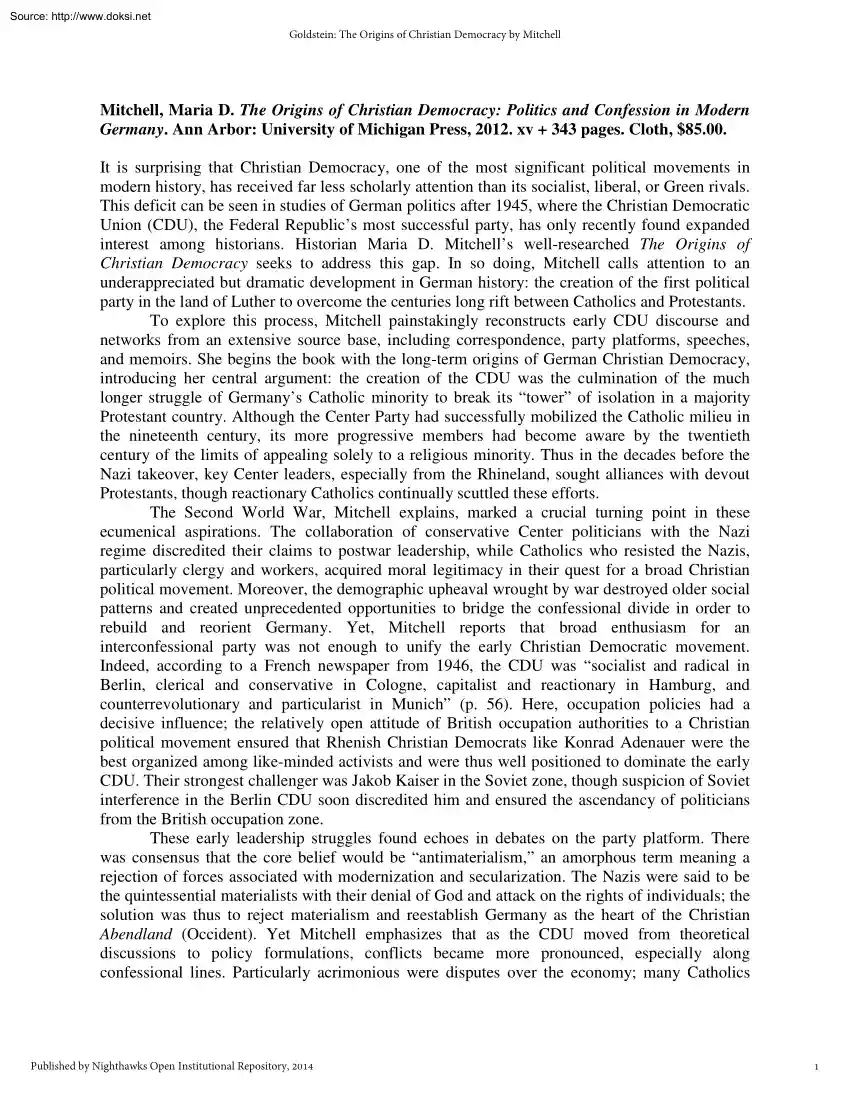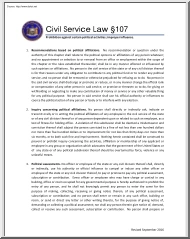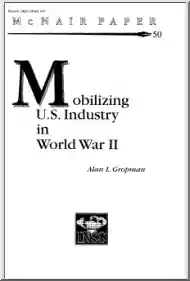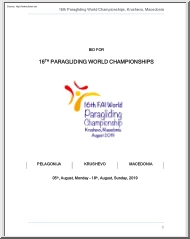A doksi online olvasásához kérlek jelentkezz be!

A doksi online olvasásához kérlek jelentkezz be!
Nincs még értékelés. Legyél Te az első!
Mit olvastak a többiek, ha ezzel végeztek?
Tartalmi kivonat
Source: http://www.doksinet Goldstein: The Origins of Christian Democracy by Mitchell Mitchell, Maria D. The Origins of Christian Democracy: Politics and Confession in Modern Germany. Ann Arbor: University of Michigan Press, 2012 xv + 343 pages Cloth, $8500 It is surprising that Christian Democracy, one of the most significant political movements in modern history, has received far less scholarly attention than its socialist, liberal, or Green rivals. This deficit can be seen in studies of German politics after 1945, where the Christian Democratic Union (CDU), the Federal Republic’s most successful party, has only recently found expanded interest among historians. Historian Maria D Mitchell’s well-researched The Origins of Christian Democracy seeks to address this gap. In so doing, Mitchell calls attention to an underappreciated but dramatic development in German history: the creation of the first political party in the land of Luther to overcome the centuries long rift between
Catholics and Protestants. To explore this process, Mitchell painstakingly reconstructs early CDU discourse and networks from an extensive source base, including correspondence, party platforms, speeches, and memoirs. She begins the book with the long-term origins of German Christian Democracy, introducing her central argument: the creation of the CDU was the culmination of the much longer struggle of Germany’s Catholic minority to break its “tower” of isolation in a majority Protestant country. Although the Center Party had successfully mobilized the Catholic milieu in the nineteenth century, its more progressive members had become aware by the twentieth century of the limits of appealing solely to a religious minority. Thus in the decades before the Nazi takeover, key Center leaders, especially from the Rhineland, sought alliances with devout Protestants, though reactionary Catholics continually scuttled these efforts. The Second World War, Mitchell explains, marked a crucial
turning point in these ecumenical aspirations. The collaboration of conservative Center politicians with the Nazi regime discredited their claims to postwar leadership, while Catholics who resisted the Nazis, particularly clergy and workers, acquired moral legitimacy in their quest for a broad Christian political movement. Moreover, the demographic upheaval wrought by war destroyed older social patterns and created unprecedented opportunities to bridge the confessional divide in order to rebuild and reorient Germany. Yet, Mitchell reports that broad enthusiasm for an interconfessional party was not enough to unify the early Christian Democratic movement. Indeed, according to a French newspaper from 1946, the CDU was “socialist and radical in Berlin, clerical and conservative in Cologne, capitalist and reactionary in Hamburg, and counterrevolutionary and particularist in Munich” (p. 56) Here, occupation policies had a decisive influence; the relatively open attitude of British
occupation authorities to a Christian political movement ensured that Rhenish Christian Democrats like Konrad Adenauer were the best organized among like-minded activists and were thus well positioned to dominate the early CDU. Their strongest challenger was Jakob Kaiser in the Soviet zone, though suspicion of Soviet interference in the Berlin CDU soon discredited him and ensured the ascendancy of politicians from the British occupation zone. These early leadership struggles found echoes in debates on the party platform. There was consensus that the core belief would be “antimaterialism,” an amorphous term meaning a rejection of forces associated with modernization and secularization. The Nazis were said to be the quintessential materialists with their denial of God and attack on the rights of individuals; the solution was thus to reject materialism and reestablish Germany as the heart of the Christian Abendland (Occident). Yet Mitchell emphasizes that as the CDU moved from
theoretical discussions to policy formulations, conflicts became more pronounced, especially along confessional lines. Particularly acrimonious were disputes over the economy; many Catholics Published by Nighthawks Open Institutional Repository, 2014 1 Source: http://www.doksinet International Social Science Review, Vol. 89 [2014], Iss 1, Art 15 workers called for Christian Socialism with sharp limits on capitalism, while many middle-class Protestants espoused a more liberal philosophy. At this critical juncture, pragmatic Catholics leaders, eager to keep Protestants in the fold, strategically dropped the term “socialism,” an outlook strengthened by intensifying Cold War tensions. Then after much intense debate, the party found a compromise in Ludwig Erhard’s social market economy, which retained a Christian ethos of social justice but shifted from an emphasis on state planning towards greater market freedom. Nonetheless, while compromise prevailed, dissent persisted and it
was not until the 1960s when confessional tensions finally declined. The most impressive feature of the book is its erudition, as its 1700 footnotes demonstrate. Mitchell’s reconstruction of the often-byzantine networks that eventually congealed into a unified party makes an important contribution to our understanding of the crystallization of political movements, especially in times of great upheaval. Her analysis of the contours and tensions within early party ideology is masterful and she does well to remind us that as much as the CDU represented a rejection of prewar political forces, it also shared important continuities with older Catholic political traditions, a fact underscored by the party’s continued difficulties in attracting Protestant supporters. In this light, Mitchell’s framing of the CDU’s creation as first and foremost a process of overcoming centuries of confessional animosity highlights the significance of the achievement and the depth of the crisis that made
it possible. Finally, Mitchell fleetingly, though intriguingly, suggests in her final chapter that the CDU’s commitment to European integration was strongly influenced by its identification with a Catholic Abendland of Western Europe, a compelling assertion that deserves further research. Mitchell’s detailed research, while adding depth and texture to her analysis, can sometimes weigh down the narrative. Chapter Three, for instance, could use a stronger focus as it jumps from CDU organizers outside the British zone, to Protestant activism in all zones, to a brief aside on women in the CDU, to the party’s first national conference. By the same token, several chapters reconstruct similar inner party disputes over economic philosophy, and while these repeated arguments no doubt reflected the liminal reality of the postwar years, perhaps the author could have streamlined the details of later clashes. Finally, Mitchell might have contextualized the CDU within the wider Christian
Democracy movement to a greater extent; such considerations are mentioned briefly, but one wonders why similar movements emerged in France and Italy––countries with very different postwar conditions and confessional histories. These points aside, Mitchell presents a nuanced history of the early CDU in its full complexity. The book offers a compelling analysis of German Christian Democracy and will likely be the definitive account of the CDU’s formation for some time. Thomas W. Goldstein, PhD Visiting Assistant Professor of History University of Arkansas Fayetteville, Arkansas http://digitalcommons.northgeorgiaedu/issr/vol89/iss1/15 2
Catholics and Protestants. To explore this process, Mitchell painstakingly reconstructs early CDU discourse and networks from an extensive source base, including correspondence, party platforms, speeches, and memoirs. She begins the book with the long-term origins of German Christian Democracy, introducing her central argument: the creation of the CDU was the culmination of the much longer struggle of Germany’s Catholic minority to break its “tower” of isolation in a majority Protestant country. Although the Center Party had successfully mobilized the Catholic milieu in the nineteenth century, its more progressive members had become aware by the twentieth century of the limits of appealing solely to a religious minority. Thus in the decades before the Nazi takeover, key Center leaders, especially from the Rhineland, sought alliances with devout Protestants, though reactionary Catholics continually scuttled these efforts. The Second World War, Mitchell explains, marked a crucial
turning point in these ecumenical aspirations. The collaboration of conservative Center politicians with the Nazi regime discredited their claims to postwar leadership, while Catholics who resisted the Nazis, particularly clergy and workers, acquired moral legitimacy in their quest for a broad Christian political movement. Moreover, the demographic upheaval wrought by war destroyed older social patterns and created unprecedented opportunities to bridge the confessional divide in order to rebuild and reorient Germany. Yet, Mitchell reports that broad enthusiasm for an interconfessional party was not enough to unify the early Christian Democratic movement. Indeed, according to a French newspaper from 1946, the CDU was “socialist and radical in Berlin, clerical and conservative in Cologne, capitalist and reactionary in Hamburg, and counterrevolutionary and particularist in Munich” (p. 56) Here, occupation policies had a decisive influence; the relatively open attitude of British
occupation authorities to a Christian political movement ensured that Rhenish Christian Democrats like Konrad Adenauer were the best organized among like-minded activists and were thus well positioned to dominate the early CDU. Their strongest challenger was Jakob Kaiser in the Soviet zone, though suspicion of Soviet interference in the Berlin CDU soon discredited him and ensured the ascendancy of politicians from the British occupation zone. These early leadership struggles found echoes in debates on the party platform. There was consensus that the core belief would be “antimaterialism,” an amorphous term meaning a rejection of forces associated with modernization and secularization. The Nazis were said to be the quintessential materialists with their denial of God and attack on the rights of individuals; the solution was thus to reject materialism and reestablish Germany as the heart of the Christian Abendland (Occident). Yet Mitchell emphasizes that as the CDU moved from
theoretical discussions to policy formulations, conflicts became more pronounced, especially along confessional lines. Particularly acrimonious were disputes over the economy; many Catholics Published by Nighthawks Open Institutional Repository, 2014 1 Source: http://www.doksinet International Social Science Review, Vol. 89 [2014], Iss 1, Art 15 workers called for Christian Socialism with sharp limits on capitalism, while many middle-class Protestants espoused a more liberal philosophy. At this critical juncture, pragmatic Catholics leaders, eager to keep Protestants in the fold, strategically dropped the term “socialism,” an outlook strengthened by intensifying Cold War tensions. Then after much intense debate, the party found a compromise in Ludwig Erhard’s social market economy, which retained a Christian ethos of social justice but shifted from an emphasis on state planning towards greater market freedom. Nonetheless, while compromise prevailed, dissent persisted and it
was not until the 1960s when confessional tensions finally declined. The most impressive feature of the book is its erudition, as its 1700 footnotes demonstrate. Mitchell’s reconstruction of the often-byzantine networks that eventually congealed into a unified party makes an important contribution to our understanding of the crystallization of political movements, especially in times of great upheaval. Her analysis of the contours and tensions within early party ideology is masterful and she does well to remind us that as much as the CDU represented a rejection of prewar political forces, it also shared important continuities with older Catholic political traditions, a fact underscored by the party’s continued difficulties in attracting Protestant supporters. In this light, Mitchell’s framing of the CDU’s creation as first and foremost a process of overcoming centuries of confessional animosity highlights the significance of the achievement and the depth of the crisis that made
it possible. Finally, Mitchell fleetingly, though intriguingly, suggests in her final chapter that the CDU’s commitment to European integration was strongly influenced by its identification with a Catholic Abendland of Western Europe, a compelling assertion that deserves further research. Mitchell’s detailed research, while adding depth and texture to her analysis, can sometimes weigh down the narrative. Chapter Three, for instance, could use a stronger focus as it jumps from CDU organizers outside the British zone, to Protestant activism in all zones, to a brief aside on women in the CDU, to the party’s first national conference. By the same token, several chapters reconstruct similar inner party disputes over economic philosophy, and while these repeated arguments no doubt reflected the liminal reality of the postwar years, perhaps the author could have streamlined the details of later clashes. Finally, Mitchell might have contextualized the CDU within the wider Christian
Democracy movement to a greater extent; such considerations are mentioned briefly, but one wonders why similar movements emerged in France and Italy––countries with very different postwar conditions and confessional histories. These points aside, Mitchell presents a nuanced history of the early CDU in its full complexity. The book offers a compelling analysis of German Christian Democracy and will likely be the definitive account of the CDU’s formation for some time. Thomas W. Goldstein, PhD Visiting Assistant Professor of History University of Arkansas Fayetteville, Arkansas http://digitalcommons.northgeorgiaedu/issr/vol89/iss1/15 2




 Évről-évre egyre jelentősebbé válik az internetes álláspiac, hiszen számos offline hirdetési forma szűnt meg az álláskereső portálok térnyerésével. A gördülékeny egymásra találásnak köszönhetően a munkahelyváltás könnyebb, mint valaha. Tudd meg, hogyan!
Évről-évre egyre jelentősebbé válik az internetes álláspiac, hiszen számos offline hirdetési forma szűnt meg az álláskereső portálok térnyerésével. A gördülékeny egymásra találásnak köszönhetően a munkahelyváltás könnyebb, mint valaha. Tudd meg, hogyan!